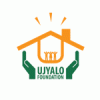Field Officer (Anticipatory Action)
Institute of Himalayan Risk Reduction (IHRR) is an organization established with an objective to assess and understand the risk to contribute to sustainability. Complying with the Sendai Framework for Disaster Risk Reduction(SFDRR), IHRR envisions to understand the risk and application of interdisciplinary knowledge with Science, Engineering, Technology and Innovation to contribute for risk reduction and bridging of academic research with professionals and policymakers for sustainability. The team consists of professionals with expertise and experiences in the field of disaster risk management in understanding the risk, conducting academic research, and field-level implementations in Nepal and different parts of the world.
Details / requirements:
Terms of Reference (ToR)
Position Title: Field Officer (Anticipatory Action)
Project: SMART – Spatial Monitoring and Anticipatory Action Response Technologies for Enhancing Climate Resilience of Flood Risk Communities in the Chaudhar River Basin, Nepal
Duty Station: Seconded at Bedkot Municipality, Nepal
Reporting To: Senior Program Officer, IHRR
Contract Type: Full-time, Fixed-Term (initially for 1 year with possibility of extension)
Application Deadline: 30th June 2025
Purpose of the Position:
The Field Officer (Anticipatory Action) will be seconded to the municipal government to support and strengthen the capacity of the local authority in managing disaster risk information systems, strengthening early warning mechanisms, implementing Impact Based Weather Forecasting (IBF), supporting data-driven anticipatory actions, and ensuring timely risk communication. The role is essential to bridge the gap between community-level data and municipal-level decision-making in disaster risk reduction and climate resilience under the SMART project.
Key Responsibilities:
1. Data Management and Analysis
-
Collect, clean, organize, and analyze data related to early warning systems (EWS), climate risks, and disaster events.
-
Support the development and regular updating of hazard, exposure, and vulnerability databases at the municipal level.
-
Maintain municipal EWS dashboards and contribute to integrating local-level data with national platforms.
-
Use GIS, mapping, and visualization tools to support evidence-based planning and decision-making.
2. Early Warning and Risk Communication Support
-
Collaborate with local disaster management committees, CDMCs and line agencies to monitor and disseminate weather forecasts and early warnings.
-
Support the development and testing of risk communication protocols, including message creation, dissemination channels, and community feedback mechanisms.
-
Ensure timely and inclusive dissemination of actionable early warnings to at-risk communities.
3. Coordination and Technical Support
-
Serve as a technical liaison between the municipality, SMART project team, local stakeholders, and CSOs.
-
Assist municipal officials in interpreting data, planning anticipatory actions, and implementing preparedness protocols.
-
Coordinate with provincial/national agencies to align data and early warning efforts with broader frameworks.
4. Monitoring, Documentation, and Reporting
-
Track and document the performance of EWS and community response activities.
-
Prepare monthly and quarterly reports with disaggregated data (by gender, age, disability, etc.).
-
Document and share success stories, learnings, and case studies for project reflection and advocacy.
5. Capacity Building and Community Engagement
-
Provide technical support and mentorship to local volunteers, social mobilizers, and DRR focal persons.
-
Organize training sessions and simulation exercises focused on localized early warning and anticipatory action.
-
Encourage citizen science approaches for rainfall and water level monitoring to improve data ownership and trust.
Qualifications and Experience:
-
Bachelor’s degree in Disaster Risk Management, Environmental Science, Geography, Data Science, or a related field (Master’s preferred).
-
At least 2 years of experience in disaster risk reduction, early warning systems, climate resilience, or community-based disaster management.
-
Strong analytical skills and experience with data visualization, GIS, and/or forecasting tools.
-
Experience working within or alongside municipalities is a strong asset.
-
Excellent interpersonal and communication skills; fluency in Nepali and proficiency in English.
-
Ability to work independently in the field and within a multidisciplinary team environment.
Key Competencies:
-
Proactive, analytical, and solutions-driven
-
Familiarity with Nepal’s DRRM Act, local governance systems, and climate change frameworks
-
Proficiency in MS Office, Excel, GIS, and relevant data tools
-
Understanding of climate-smart technologies and anticipatory action frameworks preferred
How to Apply:
Qualified and interested Nepali citizens are invited to apply by submitting this google form https://forms.gle/DtAi6L8VYohR2t7X7 no later than 30 June 2025.
Overview
| Category | Agriculture, Environment and Natural Resource, Development / NGO, Engineering, Development studies, Management, Data collection, Environment and climate |
| Openings | 1 |
| Salary | As per organization rules / |
| Position Type | Fixed Term (with Possible Extension Subject To Funding Availability) |
| Position Level | Mid Level, Entry-level |
| Education | M.Sc. (Masters in Science), Bachelors in Engineering, B.Sc. (Environment), B.Sc. (Forestry), B.E. in Environment, M.Sc. (Environment), Masters in Engineering, B. Sc. in Agriculture, Master's degree in Sociology, Bachelor's in Geography |
| Posted Date | 25 Jun, 2025 |
| Apply Before | 30 Jun, 2025 |
| City |





